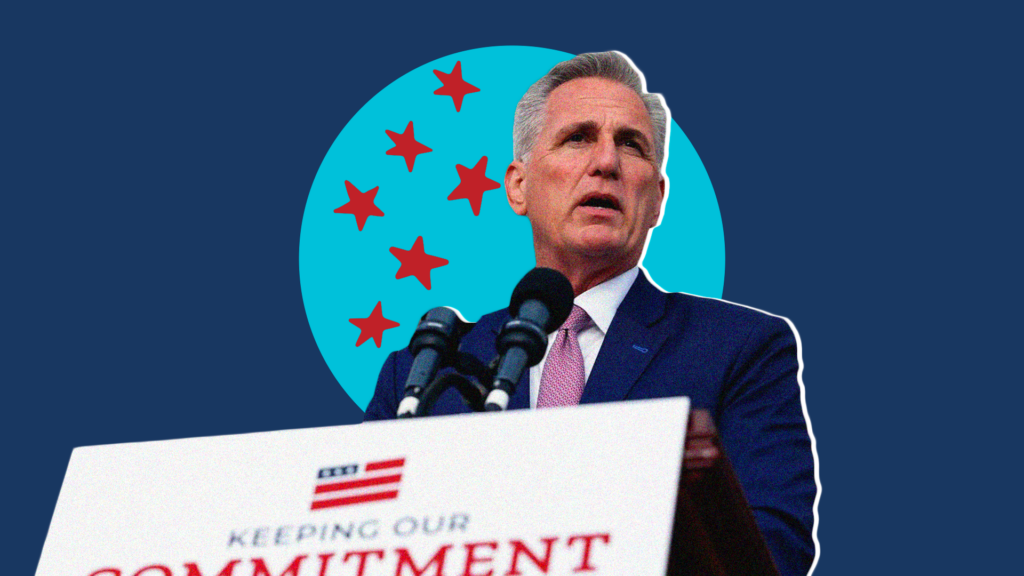Let’s Win One!
Senate Republicans, led by Phil Gramm (R-Tex) and John Kyl (R-Ariz) played hardball with Majority Leader Tom Daschle (D-S.D.) and won. They stuck together and forced Daschle to agree to a vote to eliminate the Death Tax. Permanently. This is a big tactical victory and now we must rally the troops, organize and mobilize the grassroots and turn this process victory into a policy victory for America.
Conservatives have had a difficult year since the Bush tax cut passed in early June of last year. Only legislation increasing the size and scope of government has been enacted into law since Tom Daschle became Majority Leader. The education bill, campaign finance, the agriculture bill, and appropriations bills — this has been a frustrating 12 months since the victory on tax cuts.
Now we have an opportunity to rack up an important victory and we must seize it. We need 60 senators to vote for Sens. Gramm and Kyl’s legislation to permanently repeal the Death Tax. That means all Republicans, including the most moderate in the caucus, must stick together, and then, 11 Democrats must break with Daschle and vote for this important step towards fundamental tax reform. In other words, we still face an uphill battle. But since the House of Representatives has already passed a repeal and we are within striking distance in the Senate, we must go all out.
No one will defend the current law with regard to the Death Tax. No one! Last year Congress voted to temporarily repeal the Death Tax. It’s what late night comics live for – how do you temporarily die? How do you defend with a straight face a law that says if you die in 2010, you pay no tax, but if you die in 2011 you pay 55 percent to the federal government?
Beyond the superficial ridiculousness of current law, there are some very real and substantive policy problems with temporarily repealing the Death Tax. First, Congress has virtually taken away the right of citizens to do meaningful estate planning. You really need to know what year you are going to die to determine what is the best way to organize your assets. That is fundamentally unfair. Second, Congress has taken away the great economic advantage of repealing the Death Tax. Rather than having billions of dollars in assets invested in tax avoidance strategies, if we permanently repeal the Death Tax those billions will go towards investments with the highest rate of return. No matter what political persuasion, it makes sense to have assets invested in economic growth rather than in tax avoidance schemes dreamed up by lawyers and accountants.
Congress also increased estate taxes last year for residents in 24 states. That’s right, when Congress temporarily repealed the Death Tax, it actually increased the taxes many estates will have to pay over the next few years. Twenty four states (including the District of Columbia) have linked their own Death Tax to an old version of the federal tax code. This wasn’t a problem in the past because the state tax was offset by a federal credit, reducing federal taxes for each dollar paid to a state.
But last year’s tax bill phases out the federal credit for state taxes paid over the next three years much faster than it phases out the federal tax. Without the credit to reduce their federal tax, families in 24 states will face a higher combined federal and state rate. As the chief economist for the Tax Foundation, John Barry, has pointed out, the total top Death Tax rate of 54 percent in 2002 will go up to 60 percent in 2004 in most affected states.
Policy, messaging, and polling all favor permanent repeal of the Death Tax. But now we need the votes. Conservative, libertarian, Republican, and right-thinking Democrat activists need to press the case relentlessly to their senators over the next few weeks. If we can’t rally the troops for a vote like this, we should stop complaining when Congress enacts bad policy.
We need more than spot media buys – although there is nothing wrong with them. We need activists constantly in their senator’s district offices. We need to activate our phone banks and get letters into senate offices quickly. Local rallies and letters-to-the-editors can make a big difference in bringing wavering senators to the right vote.
Last year, in North Carolina, 135 CSE activists knocked on 42,000 homes and organized enough pressure to get the majority of the North Carolina state legislature to sign a pledge not to raise taxes. If we can replicate this grassroots intensity in key states, we’ll find the 60 votes needed to repeal the Death Tax.
In an election year, we’ll have plenty of opportunity to draw distinctions and separate the “good guys” from the “bad guys.” But the next few weeks should be about rounding up the votes and putting an important policy victory behind us. Given how ridiculous current law actually is, there is no reason to think that organized, informed pressure can’t convince even moderate and liberal Senators that good policy is also good politics.



